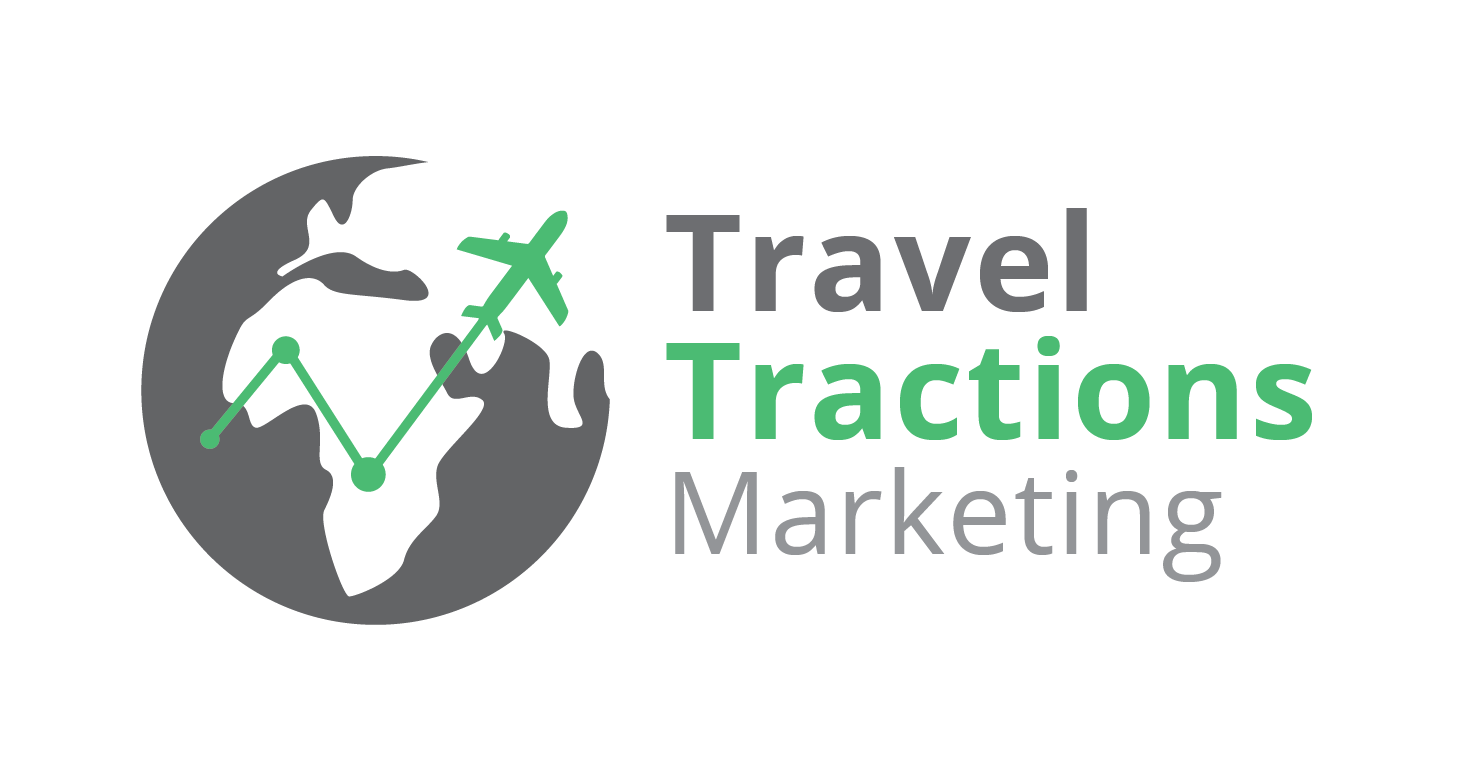
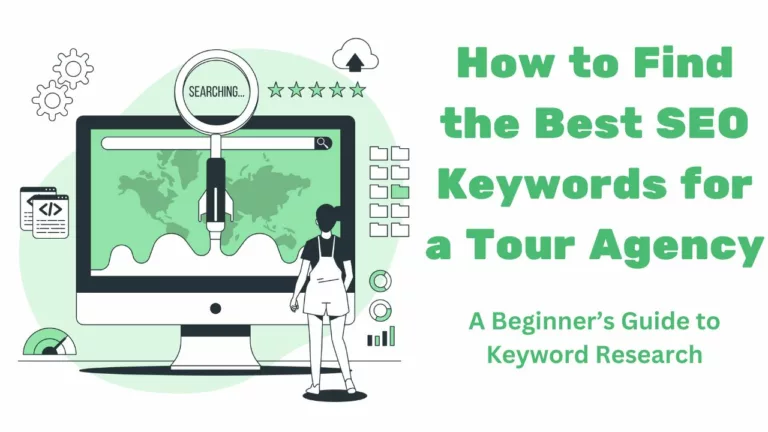
A Beginner’s Guide to Travel Keywords for a Tour Agency
Navigating the tricky world of SEO services for tour-based businesses is challenging, especially considering the constant changes made by Google, OTA’s and other search engines. Despite the neverending developments of the industry, keywords have remained a constant for any successful website.
Identifying the best travel keywords for a tour agency is essential. The travel niche is undeniably one of the most competitive industries on the internet, so being able to get the edge on your competitors makes all the difference.
Whether you’re looking to find new leads, improve the visibility of your brand, or increase traffic to your website, a strong keyword strategy is a great place to start. That said, it’s time to dive into the ultimate beginner’s guide to SEO keywords for a tour agency.
Top Tip: If you want to cut out the stress of finding keywords for your travel website, we offer a range of content marketing services.
Why Keywords Are Important for Search Engines
In short, keywords are the phrases and words that searchers use to find content and answer questions they may have. If your website isn’t optimised to include targeted keywords, then it’s not guaranteed the search engine will know what your website’s content is about.
For tour agencies and travel companies, this can significantly impact your website’s performance and overall reach. If your intended clients aren’t finding your website on the search engine results page (SERP), how else would they navigate to your website?
This is where a powerful SEO marketing strategy for tourism offers many benefits, mainly when you include keywords in your strategy. Producing fantastic content and offering quality services/products is one thing, but reaching your audience is another.
Amazing things can happen when you identify good target keywords and incorporate them into your website’s URLs, content, and headings.
Top Tip: Identifying and using the right keywords for your PPC campaign is also essential, making this process even more important. Read our PPC for tour companies guide here.
How to Identify SEO Keywords for a Tour Agency
Knowing how to identify the right keywords for your website is a must. As such, let’s have a quick look at the aspects you’ll need to keep in mind when performing keyword research.
Search Volume
Knowing how many people have performed a Google search for a keyword is paramount. If the keyword has next-to-no searches, it may not be worth targeting. Opting for highly searched keywords is ideal, as if you can rank in the SERP for these keywords, that’ll help bring in a lot of traffic and leads.
That said, there are some zero search volume keywords that are worth their weight in gold. For instance, if you’re a travel agency offering tour packages across Norway, a keyword such as “all-inclusive cruises from Ålesund” may be worth targeting. While it statistically has zero searches, a couple of sales made from that keyword can make it extremely valuable.
Keyword Difficulty
Usually, keywords with commercial intent and a high search volume will be difficult to rank for. Likewise, if your competitors are high-authority websites that have a monopoly over a specific keyword, ranking for that search term won’t be easy.
The end goal is to find keywords relating to your website that have a reasonably high search volume and low difficulty. It’s worth noting, though, that your website authority — domain ranking (DR) or domain authority (DA) — should be taken into consideration when choosing keywords to target.
Search Intent
Above all else, your website has to answer the question or provide the solution to what the searcher is looking for. It makes no sense to target a keyword like “best banana bread recipe” when your website offers comprehensive tours.
So, when someone enters your targeted keyword into the search bar, is your web page providing the result the searcher is looking for? This is the ultimate question you need to ask yourself when looking for and identifying the right keywords for your website.
A Step-By-Step Guide to Finding Keywords for the Travel Industry
Now that you know what to look for, it’s to dive into the process itself in a bit more detail. While this step-by-step guide is a great place to start, our content mining services can help you hone in on your travel niche even further.
Step 1: Analyse Already Targeted Keywords & Set Your Goals
First and foremost, you must find out what keywords you’re already targeting. The easiest way to do this is with Google Search Console’s (GSC) queries section.
GSC shows you all the keywords you are already ranking for, helping you know what you don’t need to target. Export these keywords as a Google sheet for quick and easy access.
Top Tip: If you aren’t set up on Google Search Console, it’s highly recommended you sign up now. It’s a free tool that provides loads of information about your website’s performance.
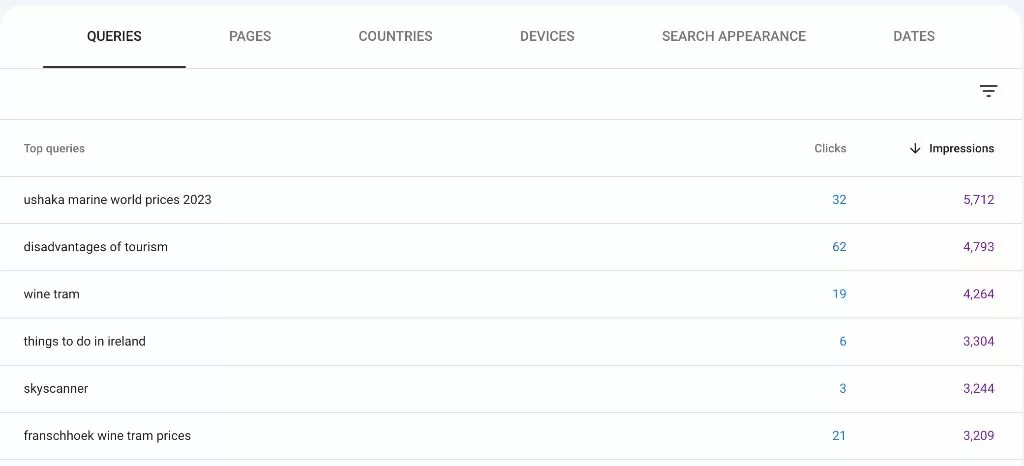
Step 2: Set Your Goals
With that out of the way, you can now start setting your goals. This process will help you narrow down what you wish to get out of the keyword research process.
Here are a couple of questions to ask yourself which can help with goal setting:
- What is your brand about?
- Who is your target audience?
- What products/services are you offering?
- What are the needs of your brand?
- What are the needs of your target audience?
Document your goals and always reflect on them when looking for keywords. They can help tremendously with identifying if a keyword is useful or not.
Step 3: Asses Your Competitors
Identifying your competitors can also help you identify good keywords to target. If you don’t have paid SEO tools, you can simply search for companies within your travel niche.
For example, if you’re a tour agency that specialises in experiences in Singapore, do a quick Google search for “tour agencies in Singapore.” This will show you the top competitors in your market.
You can then simply go onto their websites and use free tools such as SEO Quake to identify keywords relevant to your website. Alternatively, a paid tool such as Ahrefs will help you find all the keywords your competitor is ranking for, along with the keyword difficulty and traffic potential.
Note: We’ll discuss some powerful SEO tools to use later in the post.
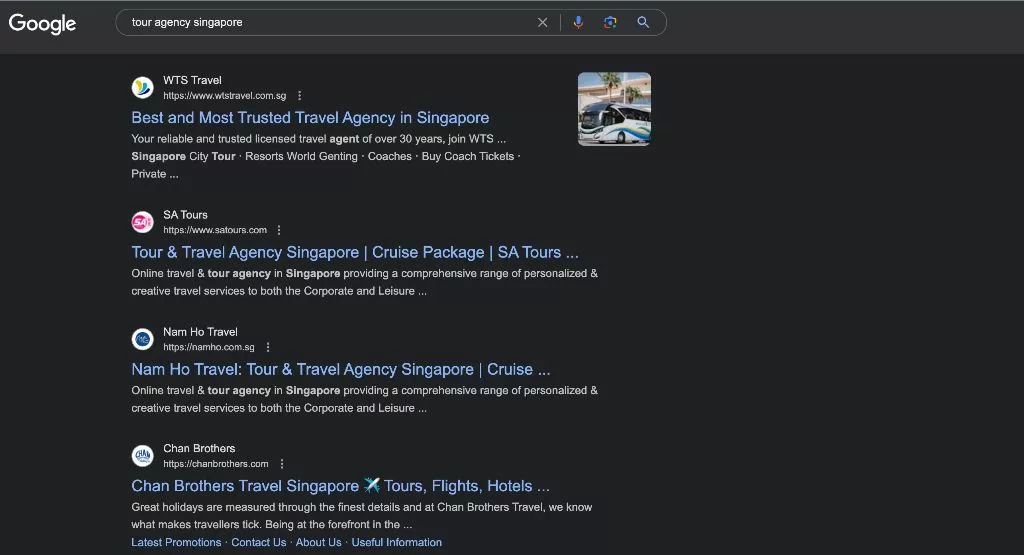
Step 4: Make a List of Relevant Topics
With the set of keywords you are already ranking for and a list of your competitor’s keywords, you can begin to make your travel keywords list.
Remove topics that are similar to one another, only keeping the best keywords. This will help ensure you don’t unnecessarily create content on a very similar topic, which could use up time and money.
You can begin prioritising once you’ve identified travel SEO keywords that align with your brand and desired direction. You can use a scale from 0–5, with 5 being your top priority and 0 being the lowest. This can help you choose the topics that have the highest ROI potential for your website, ensuring you don’t waste funds.
Top Tip: It’s best to try and whittle down your keyword list to the top 50 options.
Step 5: Investigate the SERPs to Identify the Search Intent
You’re nearly there, and now it’s time to dive back into the SERPs of your top 50 keywords related to travel. When you search each keyword, be sure to go into the first three results and look at the type of content.
This will help you figure out if your brand creates a similar type of content or if the keyword actually isn’t worth writing about. For instance, some keywords prioritise videos in the SERPs, and if you’re an agency that specialises in travel insurance, it’s highly unlikely you’ll rank for video-based content.
Identifying the search intent is a really important step, so we recommend spending a bit of time on this process to ensure you’re choosing the best possible keywords for your website.
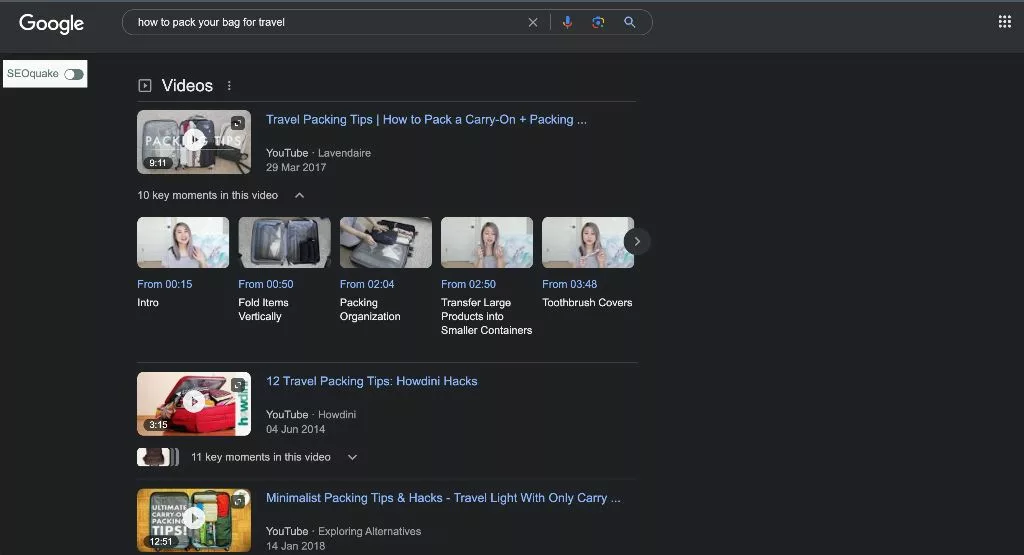
Step 6: Create a Final List of the Top Long Tail Keywords
Last but not least, you’ll want to finalise your list of topics. During this final step, you can include small comments for each keyword on how to structure the page, why you should target the topic and any other notes that will be helpful in the future.
It’s also worth noting that long-tail keywords are generally easier to rank for than short-tail keywords. With your final list in hand, you’ll have an SEO strategy that helps you create better content than your competitors. In essence, this will allow you to rank for the most searched travel keywords within your niche.
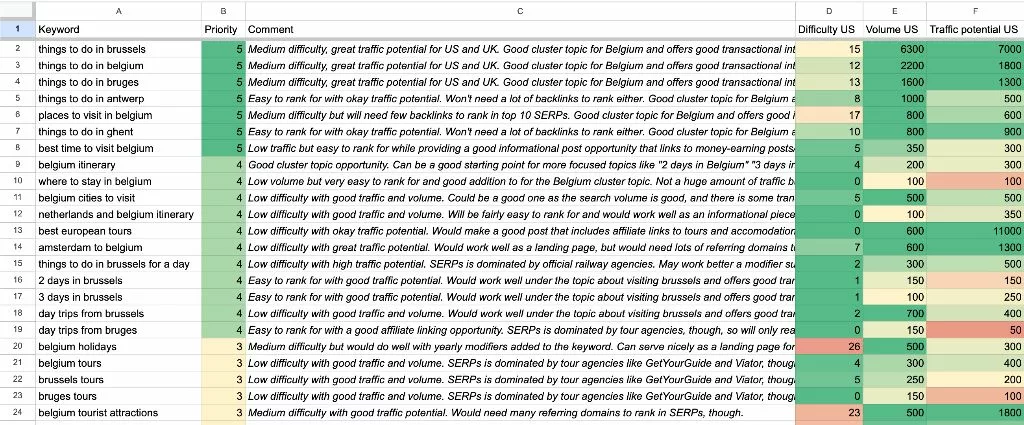
Keyword Research Tools to Help Improve Your SEO
You now have a guide to finding relevant traffic sources for your website, but what tools can you use to make the process even easier? Here are our top recommendations — for free and paid tools — that make your strategy efforts even more successful.
Google Search Console
As previously mentioned, Google Search Console is a free and extremely powerful tool every website should use. It can show you all the online searches your website is ranking for, where your traffic is coming from, and much more.
So, besides being great for keyword research, it’s also fantastic for getting a better understanding of your website’s overall performance.
Top Tip: If you want even better results, Keysearch is an affordable tool we use regularly.
Keyword Surfer Extension
For a free tool that helps you understand the volume of searches a keyword gets, the Keyword Surfer Extension is a great choice. Powered by Surfer SEO, it offers insights into a competing page’s word count, how many times the target keyword has been used, and if the title has been changed.
If you want even more details, they do offer a paid version, which has a heap of features. It’ll show you the recommended number of images to add to the page, additional keywords to incorporate, the recommended number of headings and paragraphs, and much more.
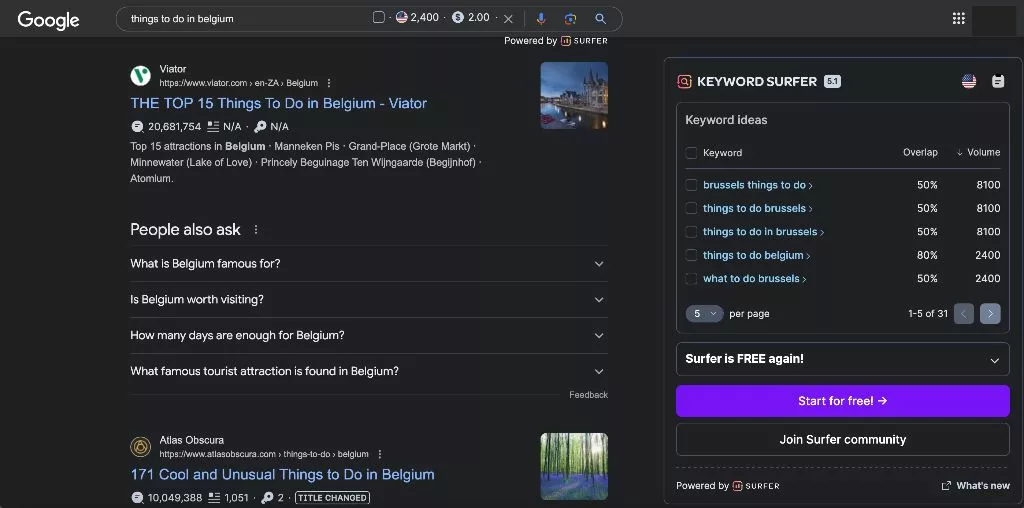
SEOquake Extension
Another free tool that can help you identify keywords for travel and tourism is the SEOquake Extension. Unfortunately, it is only limited to showing you four-word keywords that feature on a web page, so you won’t be able to discover the easier-to-rank for long-tail keywords.
That said, it’s still a super helpful tool that offers other features to help you get the edge over fellow travel agents. You can get details on your competitor’s backlink reports, the keyword difficulty, and the traffic data, so it’s definitely worth installing.
Note: SEOquake is powered by Semrush, which offers more paid tools that provide even deeper insights.
Ahrefs
Last, certainly not least, there’s Ahrefs, one of the most powerful SEO tools on the internet. This is a paid tool, but the insights you’ll receive are second to none. From tracking your own website and analysing the SERPs to discovering keyword difficulty and finding out your website’s authority, it offers a world of information.
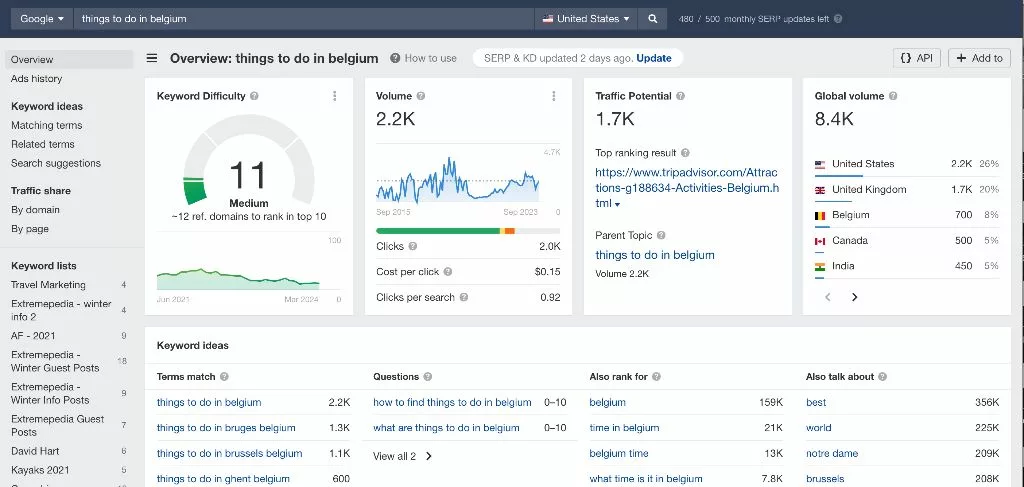
The Difference Between Short and Long Tail Keywords
Keeping to the point, a short-tail keyword is a highly searched, broad term that is extremely difficult to rank for but offers a high search volume. In contrast, a long-tail keyword is usually more niche-specific and directed, resulting in lower search volume but making it much easier to rank for.
An easy example of this would be the keyword “Spain”. This is a short-tail and broad keyword that encapsulates everything associated with the country. A long-tail keyword that would be more specific and easier to rank for is “Best Wine Tours from Madrid Spain”.
Why Monopolising Your Own Keywords is Essential
Incorporating keywords about your travel niche is all fine and well, but it will mean nothing if you don’t monopolise your brand. Ideally, when someone searches your brand name, you’ll want your website to be the first thing that pops up.
If it isn’t, this would be the first thing you’ll want to address. For example, if your website’s name is “Tour Spain With Phil” you’ll have to ensure when this is searched, your website is the first thing that pops up.
Here are a few things to help monopolise your own keyword:
- Set up Google My Business Account
- Use your brand name throughout your website
- Link from your brand’s social media pages to your website and vice versa
- Ensure you have a good privacy policy, terms and conditions, and about-page
These are the small things that can help improve your website and the chances of ranking for targeted keywords.
Our List of the Top Keywords for Travel
Before sending you on your way, here’s a quick list of our 10 top travel keywords you can start using. Many of them can use modifiers that apply to your agency and location or the destinations you intend to target.
| Keyword | Example of Use | Average Search Volume |
| Cheap flights from x to y | Cheap flights from London to New York | 2K – 4K |
| All-inclusive vacations in x | All-inclusive vacations in Chiang Mai | 1K – 9K |
| Tour Packages | Grand Canyon tour packages | 6K – 18K |
| Last-minute travel deals | Last-minute travel deals to Rome | 12K – 22K |
| Is it safe to travel to x | Is it safe to travel to Colombia | 1K – 6K |
| Best vacations for x | Best vacations for couples in the USA | 1K – 4K |
| Best hotels in x | Best hotels in Cusco | 6K – 33K |
| Where to stay in x | Where to stay in Cape Town | 1K – 10K |
| Luxury travel | Luxury travel agencies in Mexico | 1K – 18K |
| Local tour guide | Local tour guide Istanbul | 720 – 18K |
FAQs About Travel Keywords for Tour Companies
Here are some quick answers to commonly asked questions about travel keywords for SEO.
How Do You Identify Your Target Audience?
Firstly, you’ll need to identify the key characteristics of your product/service. It’s then essential you research your competitors and the market. You’ll then want to create a buyer’s persona. This includes their potential age, goals, pain points, etc.
You need to think about your marketing channels and what areas of the internet you can target to get the best results. And finally, you need to test and improve your strategy, helping you hone in on your target audience.
Can Adding Too Many Keywords Be Bad for Your SEO?
It can, as there is such a thing known as keyword stuffing. While you may have been able to add 100 keywords to one post and do well a couple of years ago, that’s not the case anymore.
As such, incorporate keywords in a natural way, keeping the writing and content and user user-friendly as possible.
Is It Possible to Do Well Without Targeting Popular Search Queries?
It’s very rare that you’ll find a successful tour agency doing well without some sort of keyword strategy. Targeting popular search queries will help improve your brand’s visibility, leading to the end goal of more sales.
Final Thoughts on Travel-Related Keywords for a Tour Agency
So there you have it, a comprehensive guide to keyword research and its importance for a tour agency’s success. While we’ve included some helpful tools and a how-to guide, identifying the best possible keywords for you to target isn’t always easy.
If you want to get the most out of your marketing strategy, we offer a range of SEO services to help your brand hit new heights.

